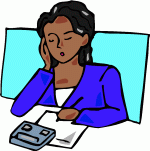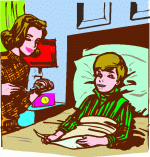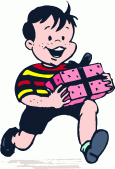Oral Practice
In this practice activity, you're going to hear a recording and decide what it is telling you. Click the Play button "ききましょう" to listen to the recording and prepare your response. Then, click on "こたえ" to see the correct response.
| ききましょう
|
こたえ | おんなのひとは、つかれています。 女の人は、疲れています。 ) | おんなのひとは、おこっています。 女の人は、怒っています。 ) | おんなのひとは、きがしずんでいます。 (女の人は、気が沈んでいます。 ) |
| X | ||||
| ききましょう
|
こたえ | おとこのひとは、こうえんに いきます。 (男の人は、公園に 行きます。 ) | おとこのひとは、こうえんに いきました。 (男の人は、公園に 行きます。 ) | おとこのひとは、こうえんに います。 (男の人は、公園に います。 |
| X | ||||
| ききましょう
|
こたえ | おんなのこは、およぎます。 (女の子は、泳ぎます。 ) | おんなのこは、およぎました。 (女の子は、泳ぎました。 ) | おんなのこは、およぎにいきます。 (女の子は、泳ぎに 行きます。 ) |
| X | ||||
| ききましょう
|
こたえ | おとこのこは、しけんを うけにいきます。 ( 男の子は 試験を うけに行きます。 ) | おとこのこは、しけんを うけにいきました。 ( 男の子は 試験を うけに行きました。 ) | おとこのこは、しけんを うけにいきませんでした。 ( 男の子は 試験を うけに 行きませんでした。 ) |
| X | ||||
| ききましょう
|
こたえ | おとこのひとは、いいません。 ( 男の人は、言いません。 ) | おとこのひとは、いいます。 ( 男の人は、言います。 ) | おとこのひとは、いいました。 ( 男の人は、言いました。 ) |
| X | ||||
| ききましょう
|
こたえ | おんなのこは、よわいです。 ( 女の子は、弱いです。 ) | おんなのこは、やせています。 ( 女の子は、痩せています。 ) | おんなのこは、つよいです。 ( 女の子は、強いです。 ) |
| X | ||||
| ききましょう
|
こたえ | おんなのひとは、グアテマラじんです。(女の人は、グアテマラ人です。) | おんなのひとは、グアテマラごです。 女の人は、グアテマラ語です。) | おんなのひとは、グアテマラです。 (女の人は、グアテマラです。 ) |
| X | ||||
| ききましょう
|
こたえ | おとこのひとは、ドイツじんです。 (男の人は、ドイツ人です。 ). | おとこのひとは、ジャーマニーじんです。 ( 男の人は、ジャーマニー人です。 | おとこのひとは、ドイツごです。 ( 男の人は、ドイツ語です。 ) |
| X | ||||
| ききましょう
|
こたえ | こどもは、うれしいです。 ( 子供は、嬉しいです。 ) | こどもは、びょうきです。 ( 子供は、病気です。 ) | こどもは、かなしいです。(子供は、悲しいです。) |
| X | ||||
| ききましょう
|
こたえ | おんなのこは、べんきょうします。 ( 女の子は、勉強します。 ) | おんなのこは、べんきょうしました。 ( 女の子は、勉強しました。 ) | おんなのこは、べんきょうしています。 ( 女の子は、勉強しています。 ) |
| X |
![]() Unit Review
Unit Review
Do the following activity to see if you are ready for the unit exam. If you have problems, return to these sections and do more practice with the concepts.
Say that you did these activities in the images yesterday.
Please make note of the images associated with each activity in this set and the next set in case you see them used on a future quiz or test.
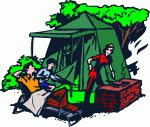 |
きのう、キャンプを しました。(昨日、キャンプを しました。) |
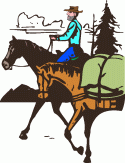 |
きのう、うまに のりました。(昨日、馬に 乗りました。) |
|
|
きのう、かきました。 (昨日、書きました。) |
 |
きのう、たべました。 (昨日、食べました。) |
Now, say that your parents did these activities yesterday.
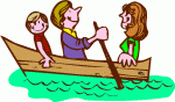 |
ボートを こぎました。(ボートを 漕ぎました。) |
 |
ねました。(寝ました。) |
Given the picture, describe how the person is.
Please make note of the images associated with each “state” or “condition” of the person in this set in case you see them used on a future quiz or test.
Now, give the nationality of each person according to the country of origin that you see.
Note that MOST foreign countries are written in Katakana, but exceptions are Japan (since it’s not foreign to a Japanese speaker) and Korea and China (both have Japanese names). These three should be done in Hiragana and/or Kanji.
| I / U.S.A. | アメリカ人です。 |
| Tom / Canada | トムさんは、カナダじんです。(トムさんは、カナダ人です。) |
| Mario / Mexico | マリオさんは、メキシコじんです。(マリオさんは、メキシコ人です。) |
| Wang / China | ワングさんは、ちゅうごくじんです。(ワングさんは、中国人です。) |
| Park / Korea | パークさんは、かんこくじんです。(パークさんは、韓国人です。 |
| Man / Spain | おとこのひとは、スペインじんです。(男の人は、スペイン人です。) |
| Woman / Saudi Arabia | おんなのひとは、サウジアラビアじんです。(女の人は、サウジアラビア人です) |
| Boy / India | おとこのこは、インドじんです。(男の子は、インド人です。) |
| Girl / England | おんなのこは、イギリスじんです。(女の子は、イギリス人です。) |
| Children / France | こどもたちは、フランスじんです。(子供達は、フランス人です。) |
| Father / Italy | ちちは、イタリアじんです。(父は、イタリア人です。) |
| Mother / Australia | ははは、オーストラリアじんです。(母は、オーストラリア人です。) |
| Baby / Egypt | あかちゃんは、エジプトじんです。(赤ちゃんは、エジプト人です。) |
| You / Japan | あなたは、にほんじんです。(あなたは、日本人です。) |
Last activity is: respond to following questions.
| きのう、どこに いきましたか。(昨日、どこに 行きましたか。) | がっこうに いきました。(がっこうに 行きました。) |
| きのう、サッカーを しましたか。(昨日、サッカーを しましたか。) | いいえ、サッカーをしませんでした。 |
| きのう、せんせいは、なんと いいましたか。(昨日、先生は、何と言いましたか。) – きょうテストが あります。(今日、テストがあります。) | せんせいは、きょう、しけんがあるといいました。(先生は、今日、試験があると 言いました。) |
| だれが こたえを しっていますか。(誰が 答えを 知っていますか。) | わたしが しっています。(私が 知っています。) |
| きのう、どこにいましたか。(昨日、どこに いましたか。 | がっこうにいました。(学校に いました。) |
| 昨日、なにを しましたか。(昨日、何を しましたか。) | きのう、べんきょうしました。(昨日、勉強しました。) |
| だれが、ヨーロッパに いきたいですか。(誰が、ヨーロッパに いきたいですか。) | わたしが、ヨーロッパにいきたいです。(私が、ヨーロッパに 行きたいです。) |
| どこに ほんを いれましたか。(どこに 本を 入れましたか。) | バックパックにいれました。(バックパックに入れました 。) |
| きょねん、フランス語が はなせましたか。(きょねん、フランス語が 話せましたか。) | きょねん、フランスごが はなせませんでした。(去年、フランス語が はなせませんでした。) |
| だいさんだいめのだいとうりょう(The third president of U.S.A.) は、だれでしたか。(第三代目の大統領は、誰でしたか。) | だいさんだいめのだいとうりょうは、トーマス・ジェファーソンでした。(第三代の大統領は、トーマス・ジェファーソンでした。) |
| きのう、どのばんぐみを みましたか。(昨日、どの番組を 見ましたか。) | ニュースを みました。(ニュースを 見ました。) |
| おとうさんのたんじょうびに なにを あげましたか。(お父さんの誕生日に、何を 上げましたか。) | わたしは、ちちに とけいを あげました。(私は、父に 時計を 上げました。) |
![]() Graded Assignments
Graded Assignments
Please return to the Section 3 Tasks & Assignments folder to complete the graded assignments for Section 3, Part C.


